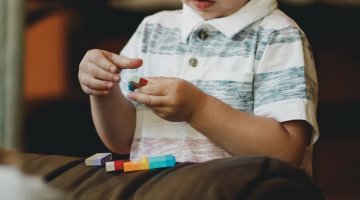Unlocking Understanding; The Importance of Open Communication, in Dual Diagnosis for Families
Dual diagnosis refers to the occurrence of a mental health disorder and substance abuse disorder. It is a demanding condition that impacts the individual and their families. Dealing with the diagnosis can be overwhelming for families as they navigate through a range of emotions, uncertainties, and the need for support. Effective communication becomes crucial in fostering understanding, empathy, and resilience within the family unit.
The Role of Communication in Dual Diagnosis
Communication forms the foundation for relationships, which holds when addressing dual diagnosis. It enables families to share their thoughts, concerns, and experiences, creating a sense of connection and support. Open and honest communication allows family members to express their emotions, seek understanding, and find common ground. It also helps break down barriers, reduce stigma, and foster an environment of empathy and compassion.
Challenges in Communicating about Dual Diagnosis
While communication plays a role in dual diagnosis scenarios, it has challenges. The complexity of dual diagnosis can create challenges in communication as individuals may experience mood swings, cognitive difficulties, or altered mental states due to substance abuse or mental health issues. These factors can impact their ability to express themselves or converse effectively. Family members may also struggle with emotions like fear, frustration, or helplessness, which can affect communication and hinder interaction.
Benefits of Communication in Dual Diagnosis
Communication in dual diagnosis brings several advantages for families. It provides a platform for expressing concerns, fears, and hopes, allowing family members to gain an understanding of each other's experiences. By discussing the challenges and impact of dual diagnosis, families can develop strategies to manage stress, establish boundaries, and support one another. Open communication also diminishes feelings of isolation and fosters a sense of unity within the family unit as they navigate the journey of dual diagnosis.
Building A Nurturing Environment For Family Communication
Establishing a nurturing environment that encourages nonjudgmental conversations is crucial in helping families navigate dual diagnosis challenges. One strategy is to create a space where family members feel comfortable expressing their thoughts and emotions without fearing consequences or misunderstandings. It's essential to set guidelines for communication emphasizing respect, active listening, and avoiding attacks, which can help maintain a supportive atmosphere for meaningful dialogue.
Furthermore, increasing awareness and knowledge about dual diagnosis among family members can foster understanding and empathy. Encouraging family members to explore resources, like books, articles, or support groups, can empower them to learn more about dual diagnosis and its impact. This collective knowledge can foster a sense of unity. Establish a shared language for discussing the ups and downs of living with dual diagnosis.
Seeking Professional Help for Improving Communication in Dual Diagnosis
Professional help also helps identify any underlying issues or conflicts within the family that may worsen the challenges of dual diagnosis. Through family therapy sessions, families can explore these matters. Work towards resolution while strengthening their communication skills. The support and guidance health professionals provide are invaluable in equipping families with the tools to navigate the complexities of dual diagnosis.
There are resources and support networks for families dealing with dual diagnosis. These resources offer education, guidance, and community for struggling families. Support groups, both online and in person, provide:
- A platform for sharing experiences.
- Learning from others' journeys.
- Finding solace in knowing they are not alone.
These support groups often offer insights and effective communication strategies for dealing with diagnoses.
Aside from support groups, families can also benefit from resources like books, websites, and online forums. These resources provide a wealth of information and practical tips that help families understand the impact of dual diagnosis and learn strategies to promote communication. By utilizing these resources, families can gain knowledge. Draw strength from others who have experienced challenges.
Empowering Families Through Communication in Dual Diagnosis
Dual Diagnosis presents unique obstacles for families, but open communication can foster understanding, empathy, and resilience by creating an environment that encourages communication, listening to one another, and seeking professional assistance when necessary. Families can navigate the complexities of dual diagnosis more smoothly wutg clear communication. Its benefits extend beyond the individual with dual diagnosis; they positively impact the entire family unit.
Harbor Detox helps families embrace communication, empower our clients while fostering a compassionate and understanding atmosphere. By breaking down barriers, reducing stigma surrounding mental health issues, and promoting unity within the family unit, families can journey through dual diagnosis together at Harbor Detox while strengthening their bonds of love and resilience.
By fostering honest communication, families can find a way to heal and grow together, ensuring that no one has to face the challenges of dual diagnosis in isolation. Contact our drug rehab in San Francisco to improve your family communication with dual diagnosis today.
More to Read:
Previous Posts:



